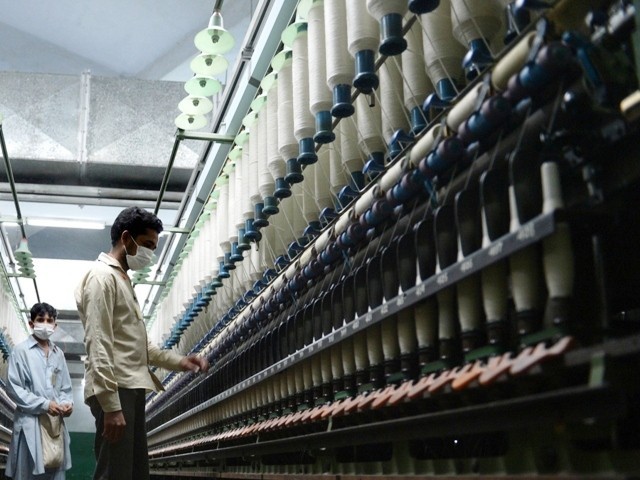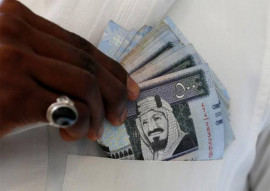
The growth of large-scale manufacturing (LSM) industries slowed down to 1.2% in August 2020, breaking the momentum of fast economic recovery that the government had hoped for after the end of first wave of coronavirus.
In August - the second month of current fiscal year, out of 15 major industries, eight recorded negative production growth while output of seven major industries showed 1.9% to 15% growth on a year-on-year basis, according to figures released by the Pakistan Bureau of Statistics (PBS) on Friday.
The LSM reading had shown a 5% year-on-year growth in July, which raised hopes for a quick recovery after the large industrial sector contracted more than 10% in the previous fiscal year.
On the back of healthy production growth in July, the cumulative expansion in first two months of the current fiscal year came in at 3.7%, reported the national data collecting agency. But on a month-on-month basis, the LSM sector contracted 6.8% in August over July.
The economic revival, observed in first two months (Jul-Aug) of current fiscal year 2020-21, may slow down in September due to climate-related events, the Ministry of Finance cautioned late last month.
It said the Monthly Economic Indicator (MEI) showed a strong growth in first two months of current fiscal year but the estimate for August may be revised later once the impact of excessive rains on trade and manufacturing became clear in the official August LSM data.
For the current fiscal year, the federal government has set the economic growth target at 2.1%.
However, the International Monetary Fund, in its latest World Economic Outlook, predicted only 1% economic growth for Pakistan and 13.3% increase in unemployment rate.
Pakistan does not have authentic poverty and unemployment numbers. The current government has also done nothing to compile latest figures of poverty and joblessness due to political reasons.
A recent report of the World Bank stated that poverty in Pakistan increased for the first time in two decades.
Prime Minister Imran Khan won the July 2018 elections on the promise of creating 10 million jobs and constructing five million homes at affordable prices - the promises that remain unfulfilled so far.
With current sluggish economic growth, there will be increase in poverty and unemployment in the remaining tenure of the government.
The sluggish LSM output will heighten the risk of a prolonged economic slowdown besides increasing unemployment in the country.
Higher inflation due to currency depreciation and imposition of indirect taxes has also adversely affected purchasing power of people.
PBS reported that out of 15 major sectors, seven registered some growth in August and eight saw a contraction, according to data released by the national statistics agency.
Data collected by the Oil Companies Advisory Committee (OCAC) showed that 11 types of industries registered an average 0.4% negative growth in August.
The Ministry of Industries, which monitors 15 industries, reported 1.5% growth in LSM output.
Provincial bureaus reported almost flat output growth of 0.04% in 11 industries. Sectors that posted growth on an annual basis included textile that grew 1.9% and non-metallic mineral products that rose 15.8% in August.
The fertiliser sector showed 3.5% growth whereas food, beverages and tobacco group recorded 8.3% growth.
Manufacturing of chemical products expanded 10.8%, paper and board 9.8% and rubber products 6.5%. Industries that registered a dip in manufacturing included coke and petroleum 5.4%, pharmaceutical 0.4% and automobile 13%. Iron and steel production fell 9.6%, electronics 25.4%, leather products 30.2%, engineering products 33.5% and wood products 70.5% in August on a year-on-year basis.




1732883922-0/diddy-(48)1732883922-0-165x106.webp)


1732882586-0/Express-Tribune-(7)1732882586-0-270x192.webp)










COMMENTS
Comments are moderated and generally will be posted if they are on-topic and not abusive.
For more information, please see our Comments FAQ